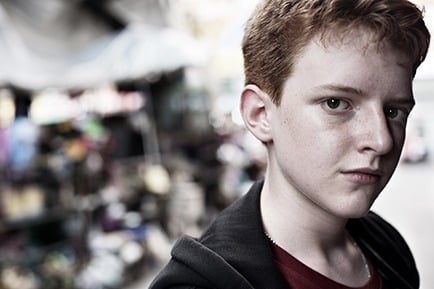
Five Reasons Not to Yell at Your Children
If you think the kids of today are more distracted, disrespectful, and poorly behaved than the children of previous generations, you are certainly not alone. Ample evidence suggests that busy schedules, the draw of computer, television, and smartphone screens, and constant pressure have produced kids who parents increasingly struggle to control.
The natural inclination is to lay down the law, become increasingly strict, and punish your children for every infraction. But research suggests this authoritarian parenting style is precisely the wrong approach to take. Children need clear rules and enforced boundaries, as well as lot of love and attention. What they don’t need is constant yelling and punishment. Here are five reasons to give up the yelling.
It Causes You to Lose Authority
Think about the last time you really yelled at your child. Chances are good you didn’t feel like a strong parent, but more like someone who had lost control and felt overwhelmed. Parents yell not to enforce rules, but because they have lost control of their own emotions. Yelling, then, produces inconsistency in your parenting, making you look weaker in front of your children. Children know that parents yell when they lose control, and they often use that lack of control to their advantage.
It Destroys Your Relationship
How do you feel when someone yells at you? Probably not very good. Yelling does not build up your relationship, and a loving, trusting, respectful relationship is key for getting your children to obey. Children who are frequently yelled at may become fearful and even develop problems such as depression. In some cases, they even begin hiding things from their parents in an attempt to avoid more yelling and more bad feelings.
It Harms Your Child
Study after study has demonstrated that yelling hurts kids. Yelling activates the anxious parts of their brain, setting off a cascade of effects. In the immediate term, yelling inhibits your child’s ability to listen. Over time, though, yelling can destroy trust, erode your child’s attachment to you, and even cause her to believe that mistreatment is normal. Studies show, for example, that children whose parents often yell at them are more likely to have dysfunctional—and even abusive—romantic relationships.
It Silences Communication
It’s not easy to talk to someone who yells at you. And some children stop talking when their parents start yelling. Most Australian parents are desperate to elicit more honesty and information from their children, but yelling conveys a clear message to your child: you don’t care about his or her feelings, and you don’t care what he or she has to say. Rather than losing it and yelling, wait until you are calmer and talk to your child about the issue. Just make sure you’re prepared to listen to his side of things, since listening enables you both to learn. Better still, by modeling listening to your child, you encourage him to listen more closely to you next time.
It Stresses You Out
Simply put, yelling is stressful, and stressful parents are neither happy nor effective. Over time, yelling can become a bad habit that you resort to every time the going gets rough, leading to an endless cascade of stress. Children of stressed parents are more likely to misbehave, less likely to excel in school, and significantly more likely to report mental health issues. Remember, it’s not just your well-being at stake here, but also your child’s!

